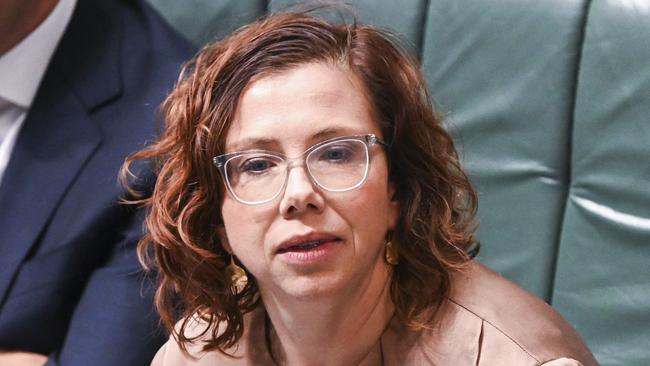Male-dominated institutions reinforce behaviours that lead to violence against women
Male-dominated institutions ‘can reinforce, support or excuse attitudes or behaviours that are supportive of violence against women’, the nation’s new consent framework warns.

Male-dominated institutions “can reinforce, support or excuse attitudes or behaviours that are supportive of violence against women”, the nation’s new consent framework warns, as it calls on organisations around the country to include sexual violence prevention in a “whole of setting” approach to gender equality.
The new commonwealth consent policy framework also says all governments and institutions must challenge “harmful misconceptions” that drive sexual violence, including that “it is common for women to lie about claims of abuse and sexual assault”.
So too “the idea that drinking alcohol or wearing particular clothing can signal consent to sex or excuse someone for assuming consent”.
Released late on Friday, the framework offers a new definition of consent in a bid to build a consistent national approach to sexual violence prevention policy across governments and in education, community, sporting and workplace settings.
Consent is defined as “a free, voluntary and informed agreement between people to participate in a sexual act – this agreement is only present when these people mutually and genuinely want to engage in that sexual act, and actively ensure their partner does too”.

Aimed particularly at consent among young people, the framework was settled after extensive consultation with experts including Chanel Contos, the founder of Teach Us Consent.
With one in five women in Australia having experienced sexual violence since the age of 15, including one in two women in their 20s, most likely at the hands of a male current or ex-partner, it sets out a series of principles including that sexual violence prevention must be considered within the broader culture of each organisation, school or workplace.
“Without examining other gender equality drivers across an organisation, young people can receive contradictory messages,” it says.

Social Services Minister Amanda Rishworth said the new framework contained practical advice for organisations looking to build strong consent messages into their programs.
“Ultimately, our goal is to end violence against women and children in one generation. To do this, we need to support young people to have safe and respectful relationships,” Ms Rishworth said.
Ms Contos said the framework would help organisations trying to navigate discussions on consent.
“The framework makes an important contribution to ensuring messaging around the fundamentals of consent are clear and cohesive,” she said.







To join the conversation, please log in. Don't have an account? Register
Join the conversation, you are commenting as Logout